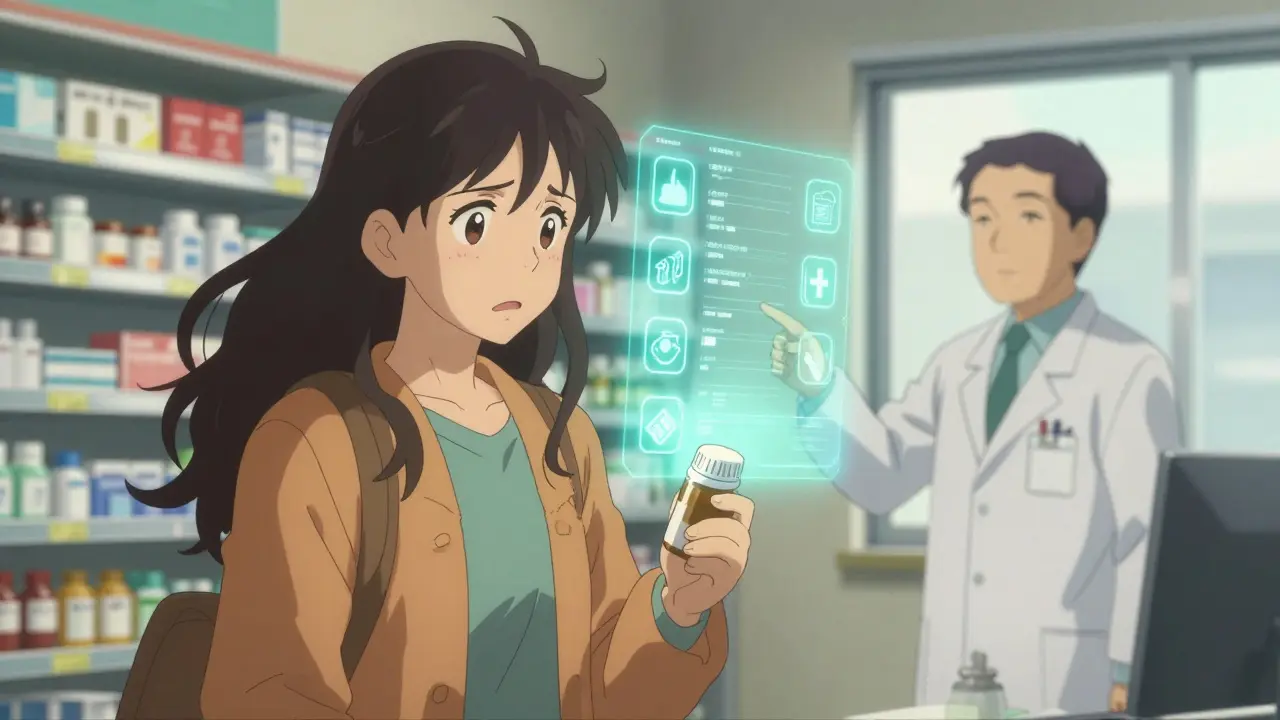Medication Safety: Simple Steps to Keep Your Drugs Working Right
Ever grabbed a pill and wondered if you’re doing it the right way? You’re not alone. A few easy habits can stop most mistakes, whether you’re at the pharmacy or ordering meds online.
Read, Verify, and Store
First thing’s first – read the label. It sounds obvious, but the tiny print tells you dosage, timing, and what to avoid. Keep a notebook or an app for each prescription; note the name, strength, and when you took it. If something looks different from what you’ve used before, double‑check with your pharmacist.
Storing meds properly matters too. Heat, moisture, and light can break down a drug. Most tablets belong in a cool, dry place – not the bathroom cabinet. Keep them out of children’s reach and away from pets.
Watch for Interactions and Side Effects
Mixing medicines without checking can cause nasty surprises. Use a reliable drug‑interaction checker or ask your doctor before adding a new over‑the‑counter product, supplement, or herbal remedy. Common culprits include ibuprofen with blood thinners or certain antibiotics with birth‑control pills.
Side effects aren’t just a headache; they can be life‑threatening. If you notice unusual symptoms – swelling, trouble breathing, severe rash – stop the drug and call a professional right away. Keeping a short list of your current meds handy speeds up the conversation.
Buying Medications Online Safely
Online pharmacies are convenient, but safety varies. Look for sites that require a prescription, display a physical address, and are certified by a recognized pharmacy board. Avoid places that sell without a prescription or promise “miracle cures.”
Before you click “Buy,” check reviews for authenticity, compare prices with local pharmacies, and verify that the product image matches the brand’s packaging. If a deal feels too good to be true, it probably is.
When in Doubt, Ask
Never hesitate to ask your pharmacist or doctor. They’re the fastest source for clarifying dosage, spotting interactions, and confirming if an online pharmacy is legit. A quick question now saves hours of trouble later.
Bottom line: medication safety is a habit, not a one‑time check. Read labels, store properly, watch for interactions, verify online sources, and keep the conversation open with your healthcare team. Follow these steps and you’ll keep your meds doing what they’re meant to – helping you stay healthy.
A Beginner’s Guide to Medication Safety for First-Time Patients
Learn how to take medications safely as a first-time patient. Avoid common errors, understand storage, interactions, and dosing with practical steps backed by CDC, FDA, and pharmacy experts.
Learn more...Medication Safety for College Students and Young Adults: What You Need to Know
Prescription drug misuse is rising among college students, especially stimulants like Adderall. Learn why it happens, where these drugs come from, and how to stay safe without risking your health or future.
Learn more...Pharmacy Workflow and Error Prevention Systems Explained
Pharmacy workflow and error prevention systems use automation, barcode scanning, and EHR integration to cut dispensing errors by up to 90%. Learn how these tools work, which ones are best, and why they're essential for patient safety.
Learn more...Imuran Explained: Uses, Risks, and Tips for Safe Immunosuppressant Therapy
Everything you need to know about Imuran (azathioprine): uses, risks, side effects, and real-world advice on safe use and living with immunosuppressant therapy.
Learn more...Loratadine for Elderly Patients: Safety Tips to Consider
Loratadine is a popular antihistamine used to combat allergy symptoms, but for elderly patients, certain considerations are key to using it safely. This article explores how loratadine functions, potential side effects specific to older adults, and important safety tips. It further delves into how this medication interacts with other common drugs and the lifestyle adjustments that can enhance safety. Are you or someone you know older and taking loratadine? Read on for practical advice!
Learn more...



